Search Images
Browse Content (p. 907)
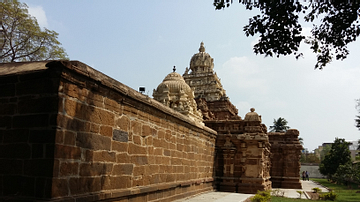
Image
Vaikuntanathaperumal Temple, Kanchipuram
Vaikuntanathaperumal Temple, Kanchipuram, India. Late 8th century CE.
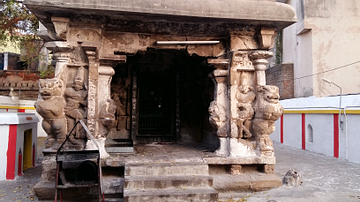
Image
Airavatiswara Temple, Kanchipuram
Airavatiswara Temple, Kanchipuram, India. 8th century CE.
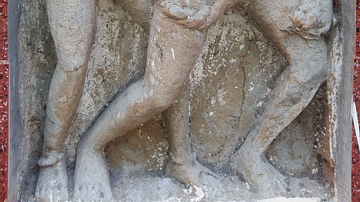
Image
Pallava Sculpture, Kanchipuram
Sculpture believed to depict a scene from 'Mathavilasa Prahasana' at Thantondreeswara Temple, Kanchipuram, India. 8th century CE.
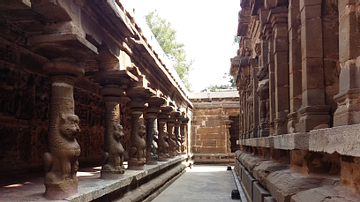
Image
Lion-Columned Pathway, Kanchipuram
Covered pathway dotted with lion-pillars, Vaikuntanathaperumal Temple, Kanchipuram, India. 755-790 CE.
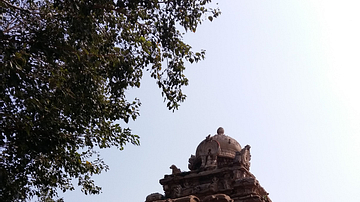
Image
Raised Pallava Shrine, Kanchipuram
Mahamantapa supported by lion-pillars and Vimana, Matangeswara Temple, Kanchipuram, India. 700-720 CE.
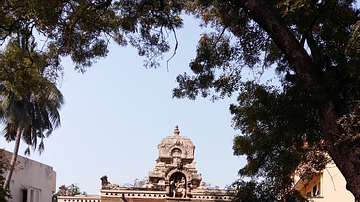
Image
Single Shrine Pallava Temple, Kanchipuram
A Shiva abode with Nandi on a raised platform, Iravasthalam Temple, Kanchipuram, India. 720 CE.

Image
Piravasthalam Pallava Temple, Kanchipuram
Relief of Shiva on the wall of the Piravasthalam Temple, Kanchipuram, India. 720 CE.
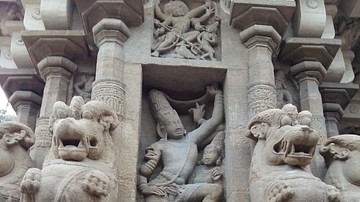
Image
Shiva & Parvathi, Kailasanatha Temple
A majestic Shiva with his consort Parvathi, the outer pathway of Kailasanatha Temple, Kanchipuram, India. 700-720 CE.
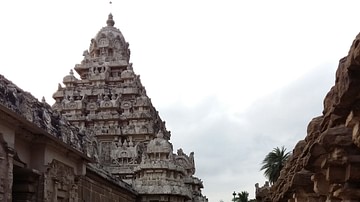
Image
Inner Courtyard, Kailasanatha Temple
Vimana and Inner corridor, Kailasanatha Temple, Kanchipuram, India. 700-720 CE.
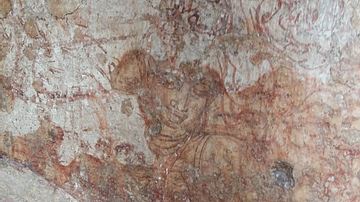
Image
Pallava Painting, Kanchipuram
Unknown face in a mural painting, Kailasanatha Temple, Kanchipuram, India. 700-720 CE.